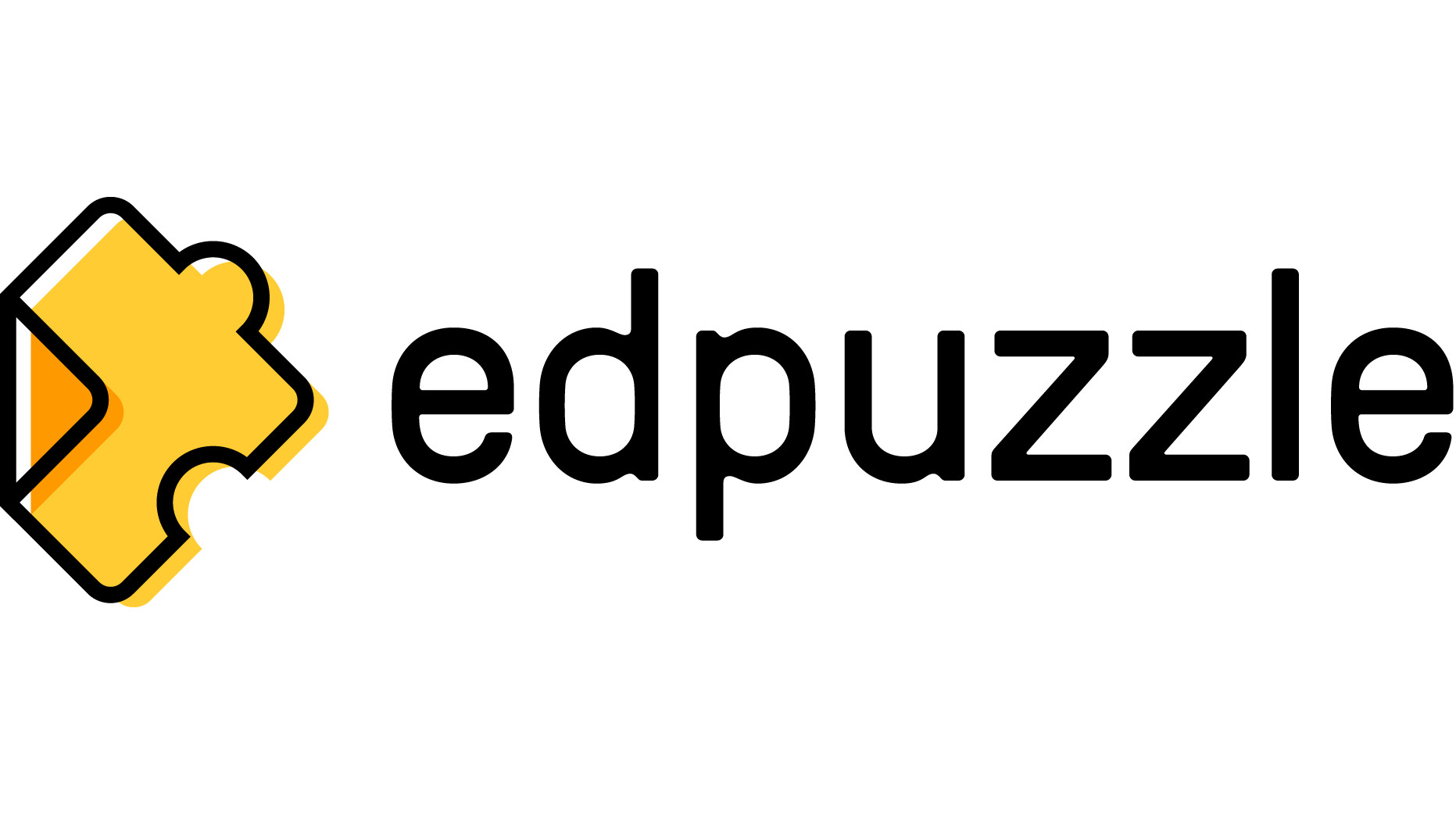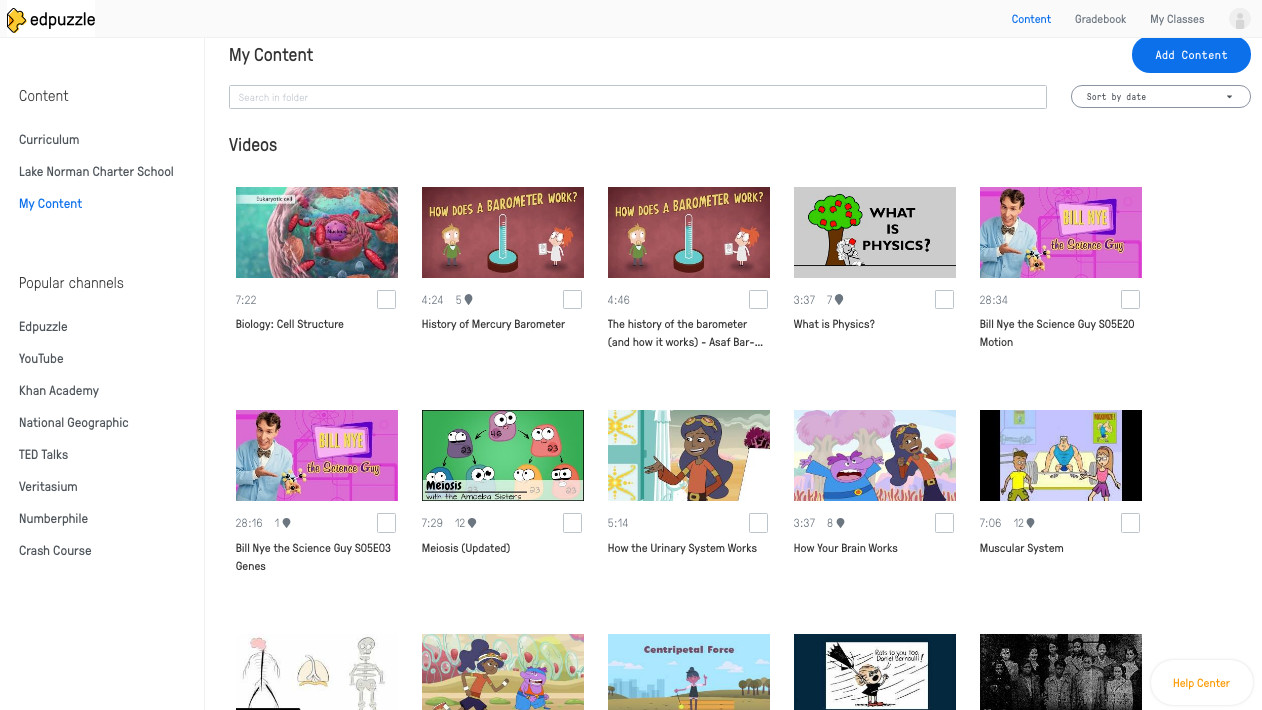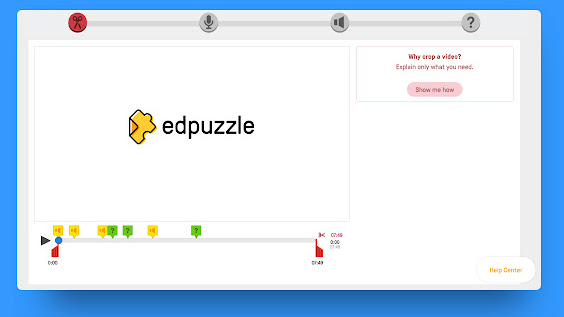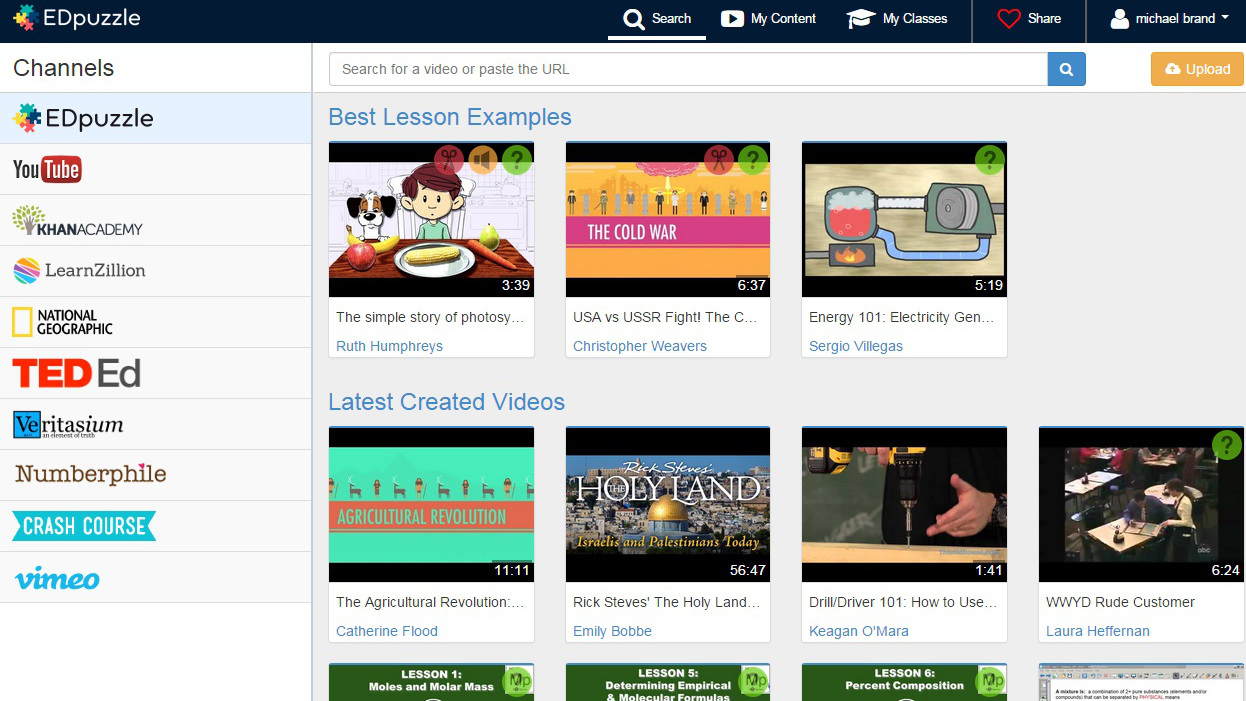What is Edpuzzle and How Does It Work?
Edpuzzle helps educators use video to teach engaging lessons and interact with students using rich media

Edpuzzle is a digital tool that helps educators take advantage of the myriad quality videos online, as well as make their own, to use in teaching. Crucially, this makes editing and creating interactivity for students an easy process.
Teachers can edit videos from YouTube and more, screen record their own, and build in assessments based on that content. Thanks to a wealth of content, including curriculum-specific videos, this is ideal for teaching. Plus, since it's built for in-school use, it will allow for appropriate video watching that might otherwise be blocked by the school connection.
Edpuzzle makes students accountable with instant feedback options and lays that all out for educators, using straight-forward but helpful analytics. So could interactive video lessons be the future for your class? Read on to find out all you need to know about Edpuzzle.
What is Edpuzzle?
Edpuzzle is an online tool that allows teachers to pull in personal and web-based videos, such as YouTube, to be cropped and used with other content. This can mean adding in voice overs, audio commentaries, extra resources, or even embedded assessment questions.
Crucially, it's possible for teachers to use Edpuzzle to see how students engage with the video content. This feedback can be useful for grading sense and as a way to get a picture of how that student chooses to interact with certain tasks.

Edpuzzle allows teachers to share their work so there are plenty of ready-made projects available for use or adaptation as needed. It's also possible to export work to collaborate with other classes, for example.
Video content can be found in a variety of ways from the likes of YouTube, TED, Vimeo, and Khan Academy. You can also select videos from a curriculum library sectionalized by content type. Teachers and students can also create their own videos to be used in the Edpuzzle project. At time of publishing, only one video can be used at a time, as combinations are not possible.
Tools and ideas to transform education. Sign up below.
Personalized Learning Certifications are also available for both students and teachers that can be used to earn continuing education units. For students, it can mean earned credits toward a project-type learning initiative.
How does Edpuzzle work?
Edpuzzle lets you setup an account to create a space in which videos can be edited. You can then select from a host of sources to draw in videos to be edited. Once you've found a video, you can go through it, adding questions along the way at relevant points. Then all that's left to do is assign it to the class.
Teachers can then check student progress in real time as they work through the given videos and their tasks throughout.

Live Mode is a feature that allows teachers to project a video of the feed that will appear to all students in an open class. Simply select a video, assign it to the class, then pick "Go live!" This will then display the video on each student's computer as well as through the teacher's projector in the classroom.
Questions appear on the students' screens as well as the projector. The number of students who have answered is displayed so you know when to move on. By selecting "Continue," students are shown any feedback you've placed for them on each question as well as the multiple choice answers. An option to select "Show responses" can provide results in percentages for the whole class – minus individual names to avoid embarrassment.
This sample Edpuzzle lesson plan is designed to help implement the tool into instruction.
What are the best Edpuzzle features?
When creating a video it's possible to embed links, insert images, create formulas, and add rich text as needed. Then it's possible to embed the finished video using an LMS system. At time of publishing there is support for: Canvas, Schoology, Moodle, Blackboard, Powerschool or Blackbaud, plus Google Classroom and more. You can also easily embed on a blog or website.
Projects is a great feature that allows teachers to assign a task to students in which they are required to create videos. Perhaps have the class add in annotations to a video experiment, explaining what is happening at each stage. This could be from an experiment filmed by the teacher or something that is already available online.

Prevent Skipping is a useful feature so students can't speed through a video but have to watch it as it plays in order to work through and answer the questions as each one appears. This intelligently pauses the video should a student begin to play it and then tries to open another tab – it won't play out in the background as it forces them to watch.
The ability to embed your voice is a powerful feature as studies have shown students pay three times more attention to a familiar voice.
You can assign videos to be watched at home, where parents are the ones given control of the student's account – something that Edpuzzle has found to be more engaging for students.
Edpuzzle is used by more than half the schools in the U.S. and is fully compliant with FERPA, COPPA, and GDPR laws so you can get involved with peace of mind. But remember to check those videos as Edpuzzle isn't accountable for what you pull in from other sources.
How much does Edpuzzle cost?
Edpuzzle offers three different pricing options: Free, Pro Teacher, or Schools & Districts.
The basic Free plans are available for teachers and students, giving access to more than 5 million videos, the ability to create lessons with questions, audio, and notes. Teachers can see detailed analytics, and have storage space for 20 videos.
The Pro Teacher plan offers all the above and adds unlimited storage space for video lessons and priority customer support. This is charged at $13.50 per month.
The Schools & Districts option is offered on a quote basis and gets you Pro Teacher for everyone, all teachers on the same secure streaming platform, streamlined curriculum across the district, and a dedicated School Success Manager to help train teachers and work on LMS integration.
Luke Edwards is a freelance writer and editor with more than two decades of experience covering tech, science, and health. He writes for many publications covering health tech, software and apps, digital teaching tools, VPNs, TV, audio, smart home, antivirus, broadband, smartphones, cars and much more.
